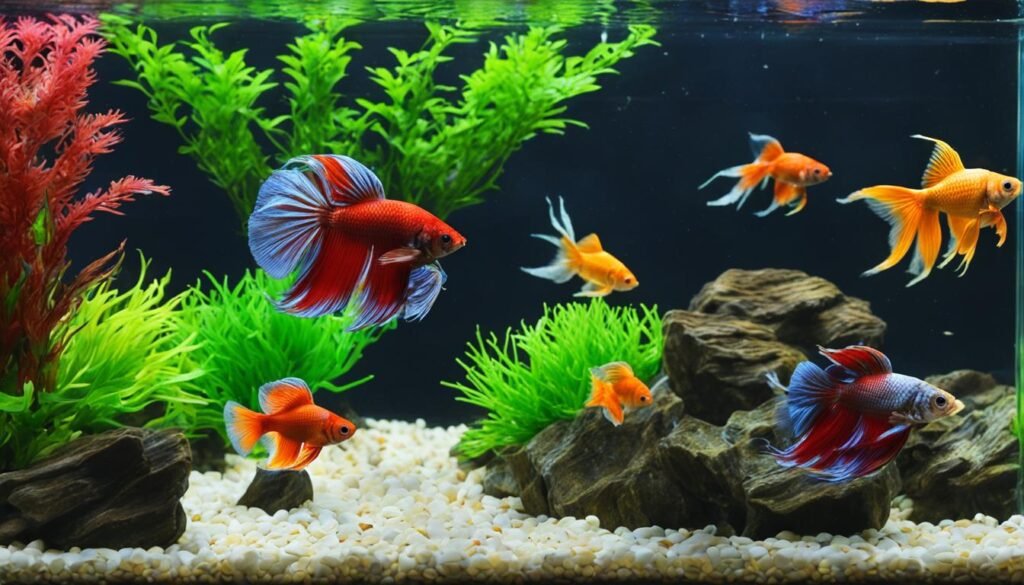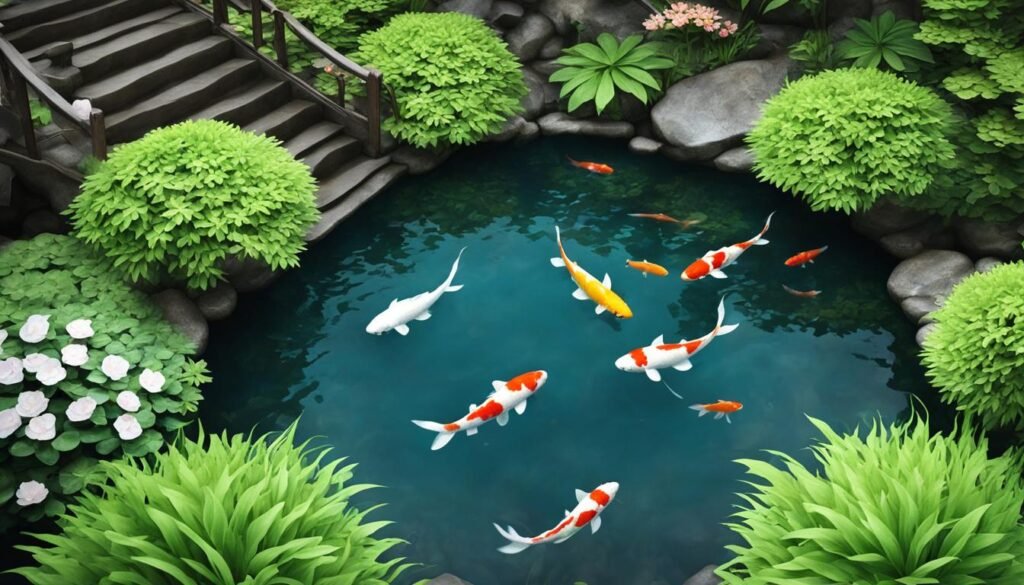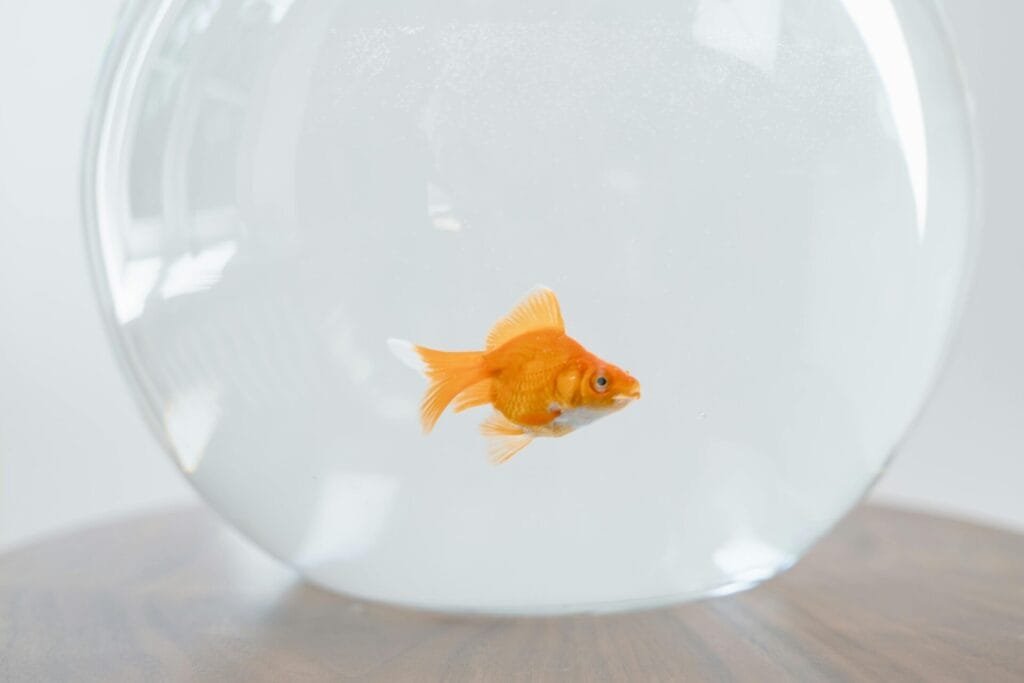Are you considering housing a betta fish and goldfish together in the same tank? Before you make a decision, it’s important to understand the compatibility of these two species as tank mates. While they may both be popular choices for aquarium enthusiasts, betta fish and goldfish have different environmental needs that may not make them suitable companions.
The Diverse World of Betta and Goldfish
When it comes to the world of aquarium fish, betta fish and goldfish are two popular choices. However, their differences in habitat requirements, behavior, and dietary needs raise the question: can betta fish and goldfish be kept together in the same aquarium?
Betta fish, also known as Siamese fighting fish, are native to Southeast Asia and are famous for their vibrant colors and aggressive nature. These beautiful fish thrive in tropical tank environments with temperatures ranging from 76–80 degrees Fahrenheit. They require a high-protein diet consisting of insects and small crustaceans to stay healthy and vibrant.
Goldfish, on the other hand, have a long history dating back to the wild carp found in East Asia. They are known for their attractive colors and have become a popular choice for aquarium enthusiasts. Goldfish prefer cooler temperatures between 62–72 degrees Fahrenheit and are omnivorous, thriving on a diet of flakes or pellets supplemented with fresh and cooked vegetables.
In terms of size, goldfish can grow larger than betta fish, often reaching lengths of 8 to 12 inches. With their larger size comes the production of more waste, which necessitates efficient tank filtration systems to maintain optimal water conditions. The tank size requirements for goldfish are also different from betta fish, as they need more space to accommodate their growth and swimming habits.
Is Cohabitation Possible?
Considering the distinct environmental needs and behaviors of betta fish and goldfish, cohabitation can be challenging and is not recommended. Their temperature preferences, dietary requirements, and tank size differences make it difficult to create a harmonious living arrangement for both species.
Temperature: Betta fish thrive in warmer water temperatures, while goldfish prefer cooler temperatures. Finding a compromise that accommodates both species in terms of temperature is tricky and may compromise the health of either betta fish or goldfish.
Diet and Behavior: Betta fish are carnivorous, requiring a diet rich in protein. They may see goldfish as potential rivals or prey due to their territorial behavior. Goldfish, on the other hand, are known to nip at the fins of other fish, which can be harmful to betta fish. These differences in behavior and dietary needs make it best to keep betta fish and goldfish separate to ensure their well-being.
Though it may be tempting to house betta fish and goldfish in the same aquarium, it is generally advised to provide separate tank environments for these distinct species. Doing so will ensure the happiness and vitality of both betta fish and goldfish, allowing them to thrive in conditions that cater to their unique requirements.
https://www.youtube.com/watch?v=ztrUf73o2aA
To Coexist or Not — The Great Betta-Goldfish Dilemma
Keeping betta fish and goldfish together can be challenging due to their different temperature preferences, dietary needs, tank size, and filtration requirements. It is important to understand the importance of keeping betta fish and goldfish apart and why they should not be housed together.
Temperature Preferences
Betta fish thrive in warmer water temperatures, typically ranging from 76°F to 80°F. This temperature range replicates their natural tropical habitat and supports their overall health and well-being. On the other hand, goldfish prefer cooler temperatures between 62°F and 72°F. These temperature differences make it difficult to find a middle ground suitable for both species, leading to stress and potential health issues if housed together.
Dietary Needs
Betta fish have specific dietary requirements and need a high-protein diet to thrive. They are carnivorous and rely on a diverse range of foods that contain insects and small crustaceans. Goldfish, on the other hand, are omnivorous and have a broader dietary spectrum that includes flakes or pellets, as well as fresh and cooked vegetables. Feeding these different diets in the same tank can lead to nutritional deficiencies and health problems for both species.
Behavior and Compatibility
Betta fish are known for their territorial nature and can be aggressive towards other fish, especially those with long, flowing fins like goldfish. Goldfish, in turn, have a tendency to nip at the fins of other fish, which can cause stress, injury, and even infections. The incompatible behaviors of betta fish and goldfish make it challenging for them to coexist peacefully in the same tank.
Keeping betta fish and goldfish separate is the best way to ensure their well-being. This way, you can create suitable tank environments that meet the individual needs of each species, providing them with optimal conditions to thrive.
| Challenges | Betta Fish | Goldfish |
|---|---|---|
| Temperature | Require warmer water (76°F – 80°F) | Prefer cooler water (62°F – 72°F) |
| Diet | High-protein diet with insects and crustaceans | Flakes/pellets with vegetables and omnivorous diet |
| Behavior | Territorial and may exhibit aggression | May nip at the fins of other fish |
| Tank Size | Require smaller tanks | Require larger tanks |
Temperature and Water Requirements
When considering the compatibility of betta fish and goldfish, it is crucial to understand their temperature and water requirements. Betta fish thrive in warmer water temperatures, typically between 78°F and 80°F. On the other hand, goldfish prefer cooler temperatures, ranging from 62°F to 72°F. These differing temperature preferences make it challenging to create a suitable environment in the same tank.
While it may seem like finding a middle ground could solve the issue, it is important to note that maintaining a specific temperature range is crucial for the health and well-being of both species. Betta fish are tropical fish that require warmer water to support their metabolic functions and overall health. Goldfish, on the other hand, are more adaptable to cooler temperatures due to their origins in colder climates.
Additionally, goldfish produce a substantial amount of waste, which can lead to poor water quality if not properly managed. They have a higher biological load compared to betta fish. Efficient filtration systems are necessary to maintain the cleanliness and stability of the tank. On the contrary, betta fish are known for being less messy and produce comparatively less waste.
To understand the extent of the differences, it is essential to realize that goldfish excrete a significant amount of ammonia into the water. Ammonia is toxic to fish and can be harmful if left unchecked. This necessitates larger tanks with robust filtration systems and regular water changes to ensure a healthy living environment for goldfish.
Ultimately, the specific temperature and water requirements of betta fish and goldfish make it challenging to house them together. To provide optimal care and ensure the well-being of both species, it is recommended to keep betta fish and goldfish in separate tanks that cater to their unique needs. This way, each fish can thrive in their preferred environment, increasing the likelihood of a healthy and happy aquatic life.
Tips for Housing Betta Fish and Goldfish Separately:
- Set up individual tanks with appropriate temperature ranges for each species.
- Invest in systems that can maintain stable water conditions and efficient filtration.
- Monitor and regularly test the water parameters to ensure optimal water quality.
- Provide appropriate tank sizes for each fish, considering their potential adult size.
- Feed betta fish a high-protein diet tailored to their carnivorous nature.
- Feed goldfish a balanced diet of flakes or pellets, supplemented with fresh and cooked vegetables.
- Observe and learn about their individual behaviors and habits to provide the best care possible.
| Betta Fish | Goldfish |
|---|---|
| Temperature Range: 78°F – 80°F | Temperature Range: 62°F – 72°F |
| Diet: High-protein (insects, small crustaceans) | Diet: Omnivorous (flakes, pellets, supplemented with vegetables) |
| Less messy, produce less waste | Produce a substantial amount of waste, requiring efficient filtration systems |
| Tank Size: 5 gallons or more | Tank Size: 20 gallons for single fish, additional space per fish |
Diet and Behavior
The dietary needs and behavior of betta fish and goldfish are different. Understanding these differences is crucial for maintaining the health and well-being of both species.
Dietary Needs
Betta fish: Betta fish are carnivores and require a high-protein diet to thrive. Their natural diet consists of insects and small crustaceans. To meet their nutritional needs, it is recommended to feed them high-quality betta pellets or flakes specifically formulated for betta fish. Additionally, occasional treats such as freeze-dried or live bloodworms can be offered.
Goldfish: Goldfish, on the other hand, are omnivorous and have a more varied diet. They should be fed a balanced diet of high-quality goldfish flakes or pellets. To enhance their diet, you can add fresh or cooked vegetables such as peas, cucumber, or zucchini. Avoid overfeeding as goldfish are prone to overeating and can develop health issues if not properly managed.
Behavior
Betta fish: Betta fish are known for their territorial nature. They can be aggressive towards other fish, including goldfish, especially if they perceive them as a threat. They may display flaring behaviors, where the betta fish spreads its fins and displays its vibrant colors to intimidate other fish. Housing betta fish with goldfish can lead to stress and potential fin damage for the betta.
Goldfish: Goldfish, although generally peaceful, have been known to nibble on the fins of other fish. While this behavior may not always cause harm, it can lead to stress and potential infection in betta fish. It is best to avoid situations that could trigger this behavior by keeping betta fish and goldfish separate.
Considering the differences in dietary needs and behavior, it is best to house betta fish and goldfish separately to ensure their optimal health and well-being.
| Comparison of Betta Fish and Goldfish Dietary and Behavior | |
|---|---|
| Betta Fish | Goldfish |
| Carnivorous | Omnivorous |
| Require a high-protein diet | Require a balanced diet of flakes or pellets supplemented with vegetables |
| Perceive goldfish as a threat and may display aggressive behavior | Can nibble on the fins of other fish |
Conclusion
After examining the differences between betta fish and goldfish in terms of temperature preferences, dietary needs, tank size, filtration requirements, and behavior, it becomes clear that housing them together is not ideal. While both fish are popular choices for aquarium enthusiasts, their distinct requirements make cohabitation challenging, if not impossible.
To ensure the well-being and happiness of both betta fish and goldfish, it is recommended to set up separate tank environments that cater to their unique needs. This means maintaining appropriate water temperatures, providing suitable diets, and ensuring proper tank size and filtration systems.
By creating separate habitats, you can optimize the living conditions for each species, promoting their health and longevity. Remember, the goal is to provide the best possible environment for your fish, allowing them to thrive individually. So, keep your betta fish and goldfish separate, and both will flourish in their own specialized tanks.


